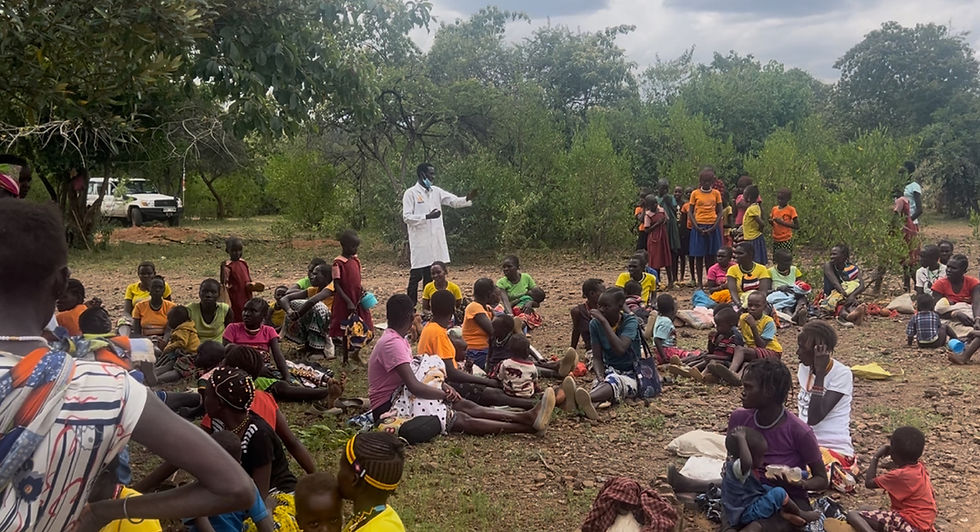Love brewed in a grandmother’s heart
- Hellen Nyakundi
- Nov 14, 2020
- 2 min read
Updated: Nov 24, 2021
I watched as the old woman approached the screening site. Her gait was surprisingly upright for someone of her age, at least 70-years-old. On her back was a small child of about a year and half, held loosely by a piece of cloth. She joined a group of noisy women waiting for their turn to see the clinical officer who was running the mobile clinic. She stood slightly apart from the rest and did not join in any of the many conversations taking place.
I purposely approached her with the intention of deworming the child, a task I had given myself seeing that everybody else was busy at their station, swamped by the growing crowd. I smiled at the lady but she did not smile back. She looked worn and tired. I requested her to turn the baby around so that I could give her some medicine. She looked at me blankly, not budging. I called out to one of the Community Health Volunteers with the Kala-azar medical camp to come and help translate. She came over quickly and explained to the old lady why we were giving the child medicine. She nodded tiredly and held the baby’s mouth open. To my surprise the baby drank the medicine without a fight. That was a first! The rest of the little fellows had to be literally held down and mouths forced open, nostrils blocked for them to swallow the medicine. The child’s eyes were sunken, I gave him a lollipop and tweaked his cheeks. I then realized he was feverish. The lab technician run some rapid diagnostic tests and the child tested positive for Kala-azar.
The grandmother looked bewildered by the turn of events. She was relieved when we assured her the baby will be cured once he received treatment. Arrangement were made to transport the child to Kimalel Health Centre, in Baringo, Kenya. This is the only facility that offers Kala-azar treatment in the region and is about 100 km from the testing site, Lowartum Village in Tiaty Sub-county. Resigned to take the trip, the grandmother held the baby close to her and gently rocked him whenever he started fretting. What an odd pair.





Comments